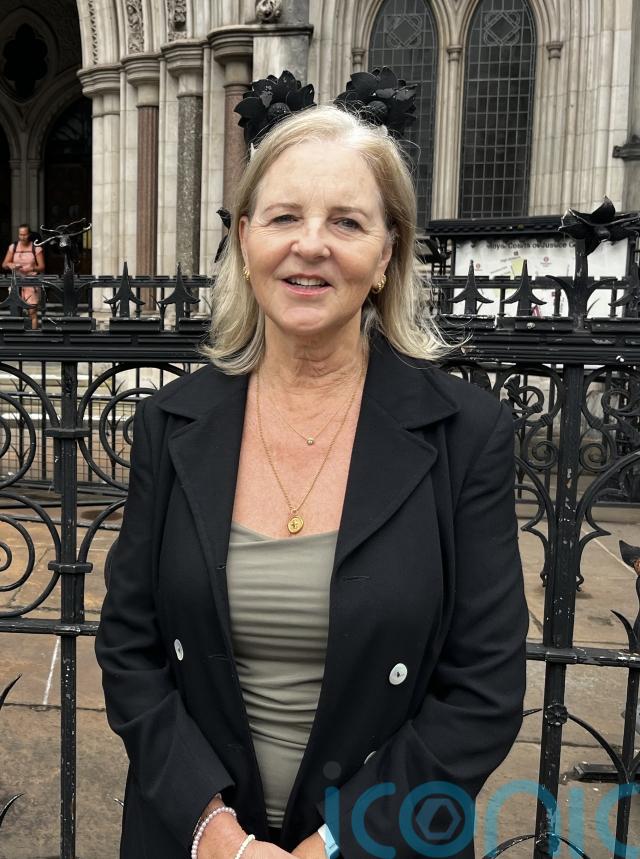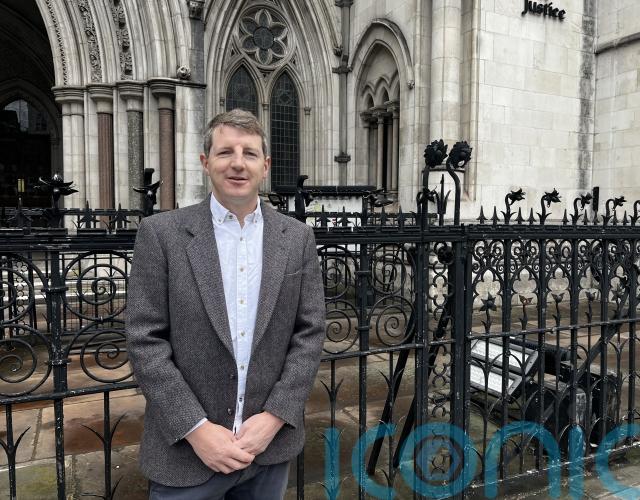
The health watchdog’s decision to register England’s first private clinic offering gender treatment to young people was “simply not open to it”, the High Court has heard.
Former nurse Susan Evans and a mother known as XX are taking legal action against the Care Quality Commission (CQC) over its decision to register the Gender Plus Hormone Clinic (GPHC) in Birmingham in January last year.
The two are also challenging the regulator’s decision to continue the clinic’s registration and to allow it to prescribe cross-sex hormone treatment to 16 and 17-year-olds without conditions, made last December.
The clinic, which was rated outstanding by the watchdog last year, treats people aged 16 and older, including through prescribing gender-affirming – masculinising or feminising – hormones, but, in line with the NHS, does not prescribe puberty blockers.
Lawyers representing the two women told a hearing on Tuesday that the watchdog did not consider aspects that were “obviously material” when making its decision, including the NHS’s stance on hormone treatment for children aged 16 and 17 in light of the Cass Review.
The watchdog is defending the claim, telling the court that it was “abundantly clear that there was ample evidence” for its decision, while lawyers for the company which runs the clinic, Gender Plus Healthcare Limited, said the legal action was “fatally flawed”.
Opening the women’s case on Tuesday, barrister Tom Cross KC said the clinic was believed to be the only hormone treatment provider to 16 and 17-year-olds in England, and that the claimants’ concern was about safety, with Ms Evans previously stating she believed the registration “creates a significant risk of a two-tier approach”.

Mr Cross said: “At arriving at the conclusion that the provider should continue to be registered without any conditions … the CQC has acted irrationally.”
He added: “It has not factored into its conclusion a number of aspects of the process on the NHS, informed by the Cass Review, which serve as important safeguards for children within the cohort and were obviously material.”
The barrister said that had the CQC factored these in, it would have “decided to exercise its power to halt the treatment” of under-18s, and that its decision was “simply not open to them”.
He claimed that “at the very least” the court “should require the CQC to think again about the adequacy of the safeguards”.
Hormone treatment was previously provided on the NHS at the now-closed Gender Identity Development Service (Gids) run by the Tavistock and Portman NHS Foundation Trust, where Ms Evans previously worked.
But a review published by Baroness Cass in April last year said that “extreme caution” should be demonstrated when deciding to prescribe the treatment to 16 and 17-year-olds, and that there should be “clear clinical rationale for providing hormones at this stage rather than waiting until an individual reaches 18”.
The NHS has opened three specialist children’s gender clinics and has plans for a further five covering the seven NHS regions in England by the end of 2026, but has said that all recommendations for hormone interventions must be endorsed by a national multi-disciplinary team (MDT).

It is understood that the MDT has not yet received any recommendations for hormone treatment for 16 and 17-year-olds, since the Cass Review.
GPHC was set up by Dr Aidan Kelly and is led by nurse consultant Paul Carruthers, who both worked at Gids, and has previously said it primarily treats patients aged between 16 and 25, using its own MDT.
But Mr Cross said in written submissions that in the year up to June 2024, GPHC has “accepted almost every single patient that it considered” for hormone treatment, and that the contrast with the NHS “could not be more stark”.
He said there were “a number of key differences” between GPHC and the NHS safeguards, including that referrals to the former came from Dr Kelly’s company, Kelly Psychology, which is unregulated.
He said: “It is, and ought to have been, obvious that the unregulated nature of the referrer enhanced the risk of patient safety.”
He concluded: “Either the CQC had to impose a condition which rationally ensured patient safety, or, if that were not possible, had to decide not to continue the registration.”
Jamie Burton KC, for the CQC, said that there was “ample evidence” that Kelly Psychology “did not pose an unacceptable risk” to patients, and that a “significant number” of those assessed by the company were not referred for treatment at GPHC.
The court was told that the CQC found no evidence of “improper decision making or anything that might flag a concern”, and that the clinic was found to be “committed to the safety and best interests of its patients”.
He continued: “CQC found GHPC to be acting in line with national guidance, including the NHS England 2024 Criteria.
“It found nothing to suggest that this was merely lip service or that GPHC management held an ideological commitment that was undermining its professional and regulatory commitments, or otherwise threatening the safety of patients.”
He also said that the CQC “had regard” to NHS processes, and that there could not be “any legitimate doubt about the correctness of the ultimate outcome, or GPHC’s continued registration”.
He said: “In its professional judgment, it found that the provider was taking reasonable steps to safeguard 16 and 17-year-olds by way of its existing processes.”
Peter Mant KC, for Gender Plus Healthcare Limited, said that there was no legal requirement for a private provider to mirror NHS care and that the claimants’ concerns “do not have a high-quality evidence base”.
He continued that the clinic’s model was “entirely consistent” with the Cass Review and NHS policy, and that patients “no longer routinely have any input” from Kelly Psychology.
He added that concerns related to the rate of accepting new patients were “unjustified”, and that the court should not “go behind” the CQC’s decision.
The hearing before Mrs Justice Eady is expected to conclude on Wednesday, with a judgment expected in writing at a later date.
Subscribe or register today to discover more from DonegalLive.ie
Buy the e-paper of the Donegal Democrat, Donegal People's Press, Donegal Post and Inish Times here for instant access to Donegal's premier news titles.
Keep up with the latest news from Donegal with our daily newsletter featuring the most important stories of the day delivered to your inbox every evening at 5pm.